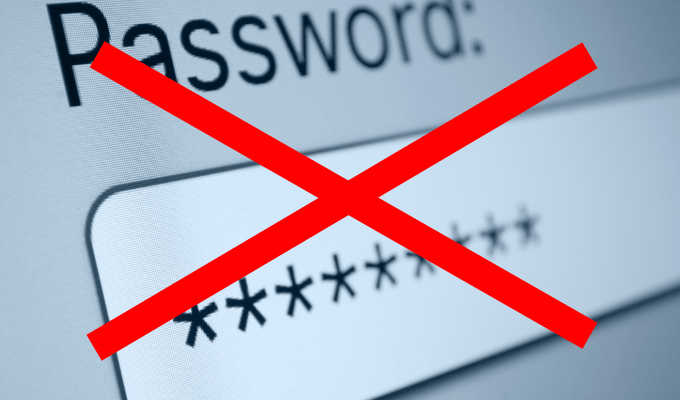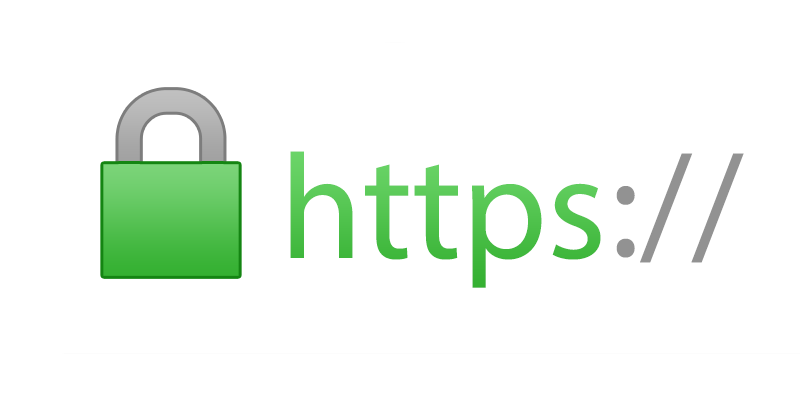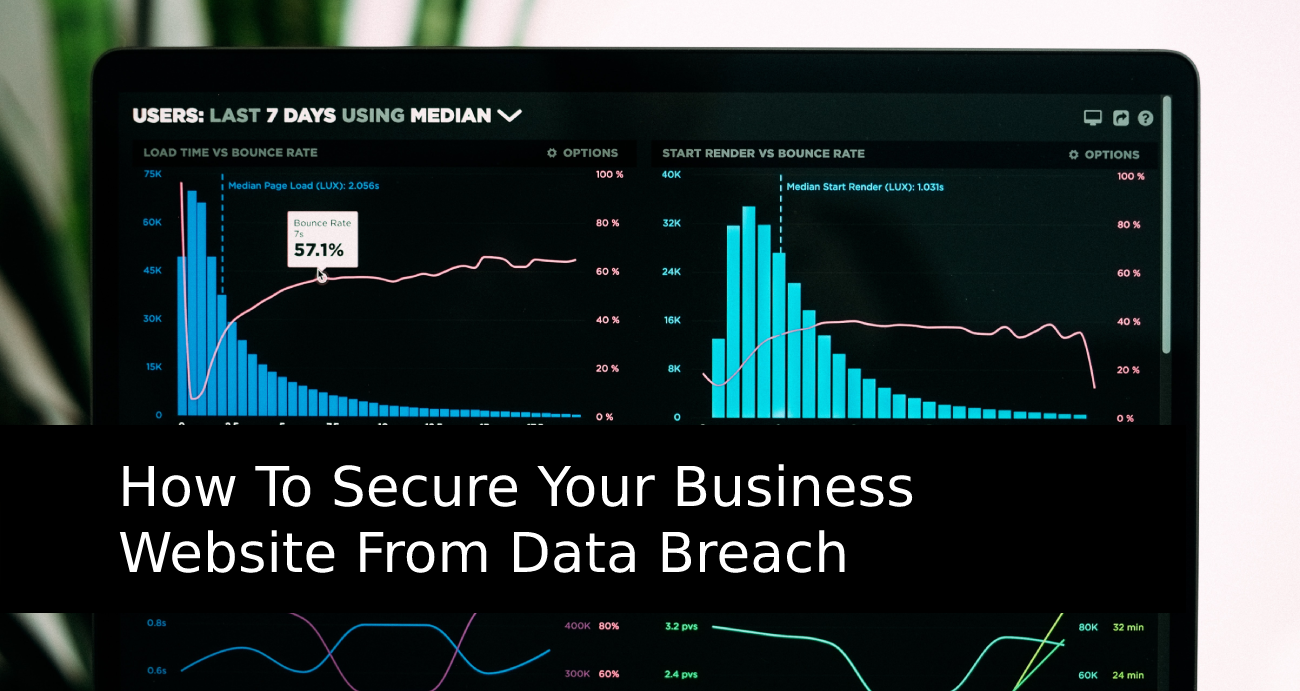Most businesses focus on designing a user-friendly and good-looking website to build a robust online presence for their brand. Companies also do everything to guarantee that the website is a success.
That said, several businesspeople often fail to pay attention to one critical component, which is website security.
A Layman’s Introduction To Website Security
If you want to secure a website from a data breach, it is essential to ensure that your website has sufficient protection from cyberattacks. Cyberattacks and data breaches will not just cost your business millions of dollars, but they can also damage your business’s reputation.
Moreover, there is a possibility that website visitors will prefer not to visit websites that have encountered cyberattacks. In simple words, website security can be defined as an application or action taken to ensure that websites’ data are not exposed to cyber attackers.
Website security will also enable you to prevent the exploitation of your website in any way. If you are wondering why it is essential to secure websites from cyber-attacks, here are a few exciting stats you should know about cyber-attacks.
- About 43 percent of cyber-attacks target small-scale businesses.
- Approximately 60 percent of small-scale firms who have encountered cyber attacks have gone out of trades in less than six months.
- The amount cybercrimes cost medium and small businesses is over 2.2 million dollars every year.
- The percentage of small companies who are concerned about being a victim of cybersecurity attacks is around 66 percent.
- System failure and human error account for more than 50 percent of data breaches.
Note: Technical problems are only the beginning with security breaches, as legal action is usually necessary as well, but you can always be ready to face such problems with experienced attorneys to represent you, whatever the circumstances.
How To Improve Your Website Security?
It might be a massive surprise to many readers when they hear that several website owners feel that their website will not be hacked because it doesn’t have anything worth hacking. Unfortunately, websites get hacked all the time, irrespective of whether they are business websites or personal ones.

Several website owners often fail to realize that most website security breaches are not to mess with your website’s layout or to steal data. Instead, they focus on using your server as a temporary web server or email relay to send spam messages. Here is how you can improve website security.
1. Select A Smart Password
Most internet users are aware that they should use complex passwords that are difficult to hack. Unfortunately, several users continue to use weak passwords. If you are one among them, it is high time you changed all your weak passwords to complex and smart ones.
It is essential to use strong and smart passwords to the admin area of your website and server. Also, you must insist on your website visitors to follow innovative password practices, as it will offer better protection to their accounts.

Indeed, most website visitors might not like the idea of encouraging them to use complex and strong passwords. However, it would help if you still insisted on using passwords with eight or more characters, a number, symbol, and uppercase letter while creating a password.
These measures will ensure that their accounts are safe and less susceptible to hacking. Finally, it would be best to store passwords as encrypted values because it will offer extra website security.
2. Use HTTPS
If you are familiar with terms like cybersecurity and website security, you may have probably heard about HTTPS. In simple words, HTTPS can be defined as a protocol used to offer security to websites over the internet.
HTTPS enables website owners to guarantee that users are talking to the expected server while ensuring that no one will change or intercept the content users are seeing. If you have anything on your website, which users would like to remain private, it is crucial to use HTTPS.
3. Deconstructing HTTPS
HTTPS or Hypertext Transfer Protocol Secure protects data confidentiality and integrity between users’ computers and your website.
Most internet users want a private and secure browsing experience when visiting a website. If your website is unable to offer that, users will prefer not to revisit the site. This is why you should adopt the HTTPS protocol to ensure more excellent protection and privacy to users.
It is integral to note that data that is sent by using HTTPS is secured via TLS (Transport Layer Security) protocol. The TLS protocol offers three layers of protection to users: authentication, data integrity, and encryption.
Most website owners hesitate to move their website from HTTP to HTTPS, mainly because they fear that the move may affect their website traffic. Moving to HTTPS may indeed affect some website traffic numbers for some time. However, having an HTTPS protocol is something that will offer numerous benefits in the long run.

4. Use An SSL Certificate
You may have probably heard several website owners asking why it is essential to install an SSL certificate. If you are running an eCommerce website or your website transmits sensitive data, it is integral to buy SSL certificate.
- If your website does any of the following, you must install a cheap SSL certificate to ensure website security.
- Process financial details like credit card numbers, online orders, bank account information, & more.
- Stores or transfers sensitive data such as license numbers, birth dates, or social security numbers.
- Includes user authentication (logins and passwords) to permit users to access restricted data or information on the websites.
- Has legal or medical-related information.
- Has restricted proprietary details, client lists, contracts, legal documents, and more.
What is SSL?
If you are new to the world of website security and SSL certificates, you might be probably wondering what an SSL certificate is. SSL certificates are small data files, which establishes an encrypted link between a browser and a web server.
The encrypted link will guarantee that all data transferred between the browser and the website will be private. Most websites contain forms that internet users have to fill in and submit to access a particular service to get more information about something on the website.
Websites that have not installed SSL certificates or unsecured websites do not offer excellent protection to users’ information. This means that the details users enter that may include their bank information and other personal information can be easily intercepted by a cyber attacker or hacker.
On the other hand, encrypted websites with SSL will bind user’s browsers with the server. The secure binding connection between the server and browser ensures that no one other than the website owners and users will access what you type and enter the form fields.
-
Keep Software Systems Updated
This may seem like an obvious point that website owners must consider ensuring more excellent safety. However, several website owners ignore software updates, and they end up using outdated software systems.
It is important to remember that keeping all the software systems up to date is crucial if you want to keep your website safe and secure. You should not just update the server operating system; instead, you must update all software systems running on your sites, such as a forum or CMS.
In addition, you need to implement an efficient vulnerability scanning process that not only identifies but also reports on any security threats that might affect your business website. Such a process will help you seal any loopholes that might leave your website exposed.
Expert hackers are always on the lookout for security holes in software systems of websites. Using an outdated software system is like inviting hackers to your website. Fortunately, you will be able to minimize the risk of cyber-attacks by regularly updating the software systems on your website whenever a recent update is available.
-
Do Not Allow Users To Upload Files
Some business websites often permit users to upload files. It is crucial to note that allowing users to upload files to websites is a vast website security risk.
The files that users upload may contain a script that can open your site up when it is executed. If you have permitted file uploading on your website, you should treat all uploaded files with suspicion and care.
It would help if you also remembered that mime type or file extension could not be relied on to ensure images’ authenticity. The most straightforward and smartest thing to do is not to allow users to upload files to your websites.
Aside from implementing a robust password strategy and ensuring your software is always updated, another critical consideration to bolster your website’s security against data breaches is understanding the benefits of VPN concentrators. VPN concentrators provide an added layer of protection by managing and maintaining large volumes of simultaneous incoming VPN connections
Conclusion
A study conducted in 2003 relieved that cyber-attacks happen at an interval of every 39 seconds on average. The web has evolved a lot since the year 2003, and the number of cyberattacks has also considerably increased.
Another study from 2018 pointed out that the number of compromised records in 2018 was approximately 18.5 million. This accounts for nearly 214 records per second. A report from 2019 revealed that security breaches have increased to around 69 percent in less than five years.
These statistics might have given you a clear idea of why it is essential to secure your website. Falling prey to a cyberattack will cost you money, and it will also put your business’s reputation at higher risk. Fortunately, you can avoid such issues by adopting the best practices to ensure website security.




